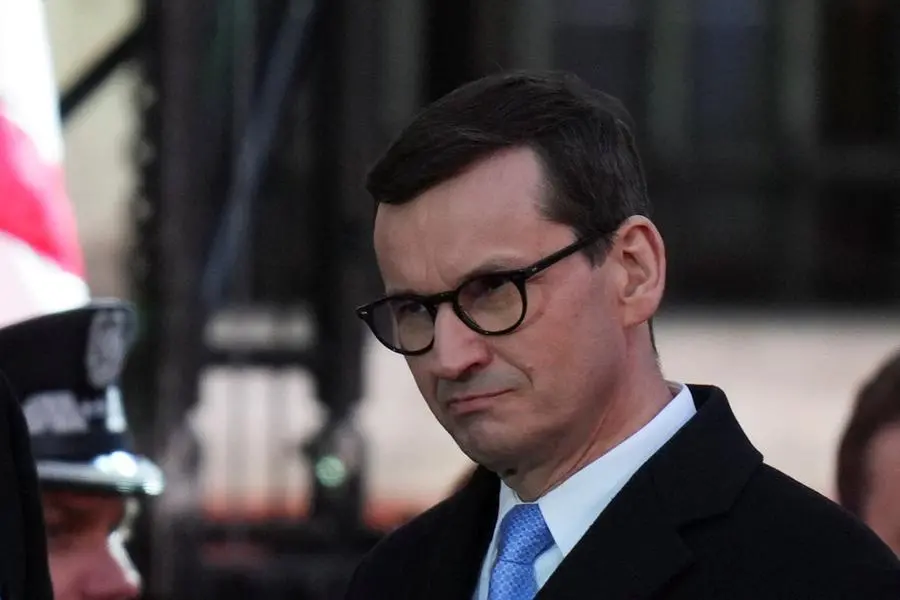PHOTO
Poland will demand the reform of the European Union's border agency Frontex and more funds for dealing with migrants, the prime minister said on Thursday, as he prepared to oppose a migration deal at an EU summit in Brussels.
Under the deal reached earlier this month each country would be responsible for a set number of migrants, but would not necessarily have to take them in.
Countries unwilling to receive irregular migrants and refugees arriving ad hoc to the EU would help their hosting peers through cash - around 20,000 euros per person - equipment or personnel.
Poland says it will hold a referendum on whether to accept the deal, possibly on the same day as elections scheduled for October or November.
"At the meeting of the European Council, I will propose a plan for secure borders," Mateusz Morawiecki told a press conference.
"No to forced relocation of migrants, no to the violation of veto rights by individual states and no to the violation of the principle of sovereignty of decisions, no to imposed penalties from Brussels."
Morawiecki said Frontex should be reformed to help it deal more effectively with people smugglers. He said that countries responsible for securing the EU's external borders should receive more funds and that social benefits for people entering the bloc should be limited.
Poland's ruling nationalists law and Justice (PiS) were staunchly opposed to previous attempts by Brussels to relocate migrants using a quota system, citing security concerns.
PiS say it would be unfair to force Poland to take in migrants as it has already taken in 1.5 million to 2 million Ukrainian refugees.
However, critics say that the deal would not force Poland to take in more migrants and that PiS is simply using the issue as a campaign tool as it seeks to gain a third term in power.
European Commissioner for Home Affairs Ylva Johansson told Polish new website Onet this month that Poland would actually stand to benefit from the migration deal and that countries facing migratory pressures such are exempt from making solidarity payments. (Reporting by Alan Charlish, Pawel Florkiewicz and Marek Strzelecki, Editing by Angus MacSwan)





















